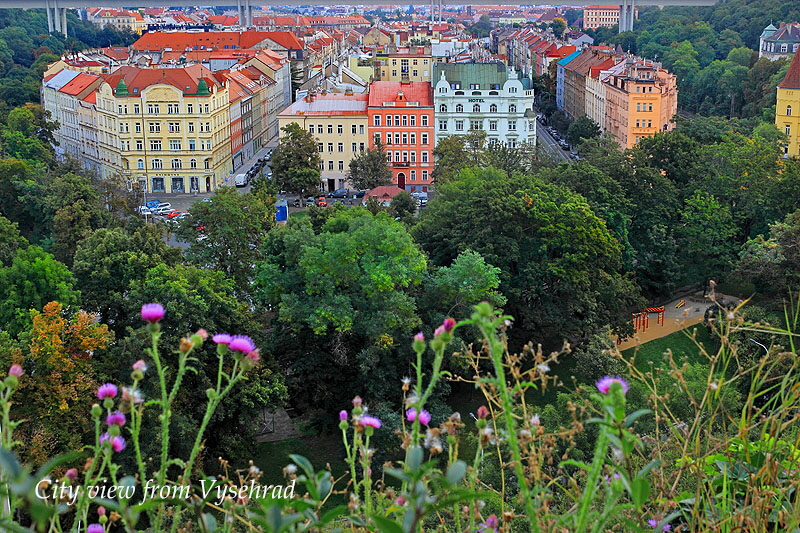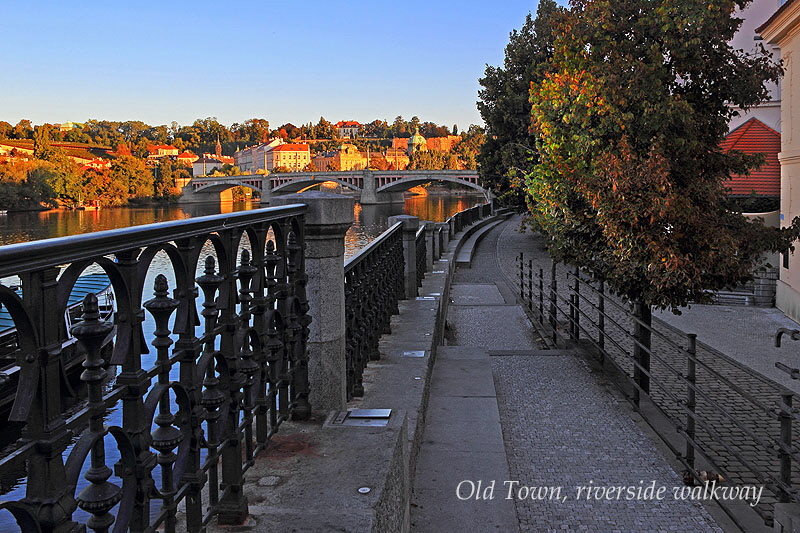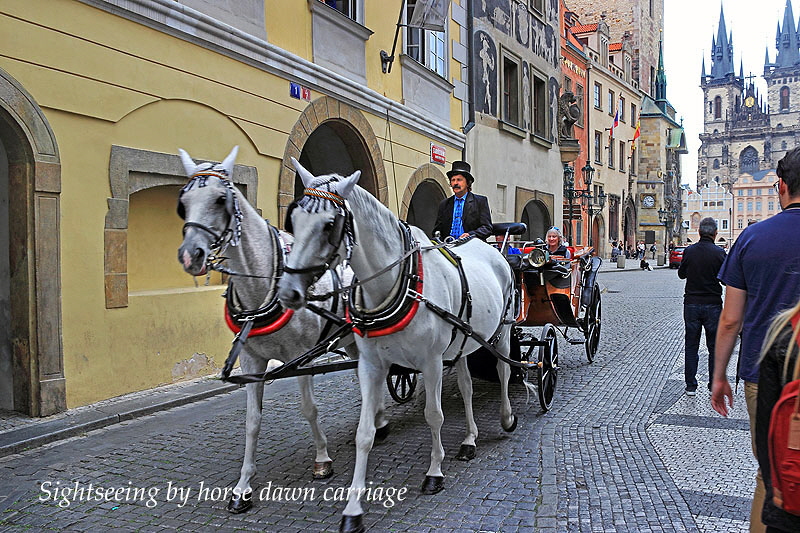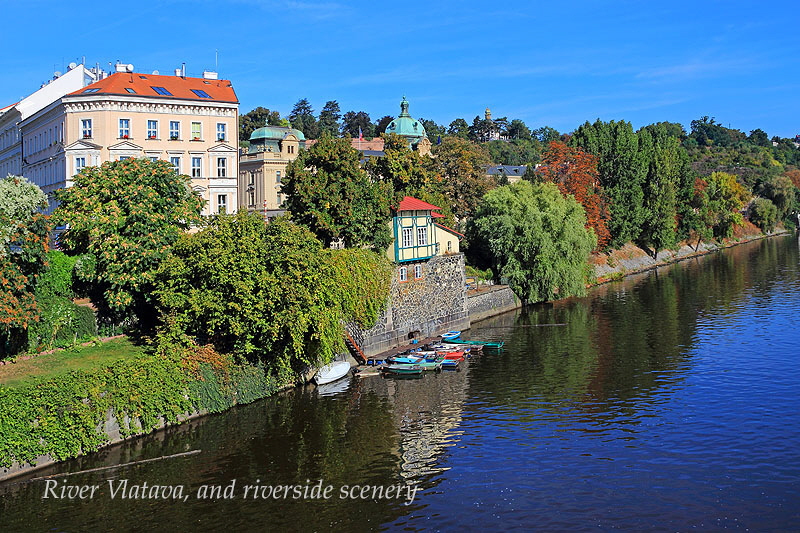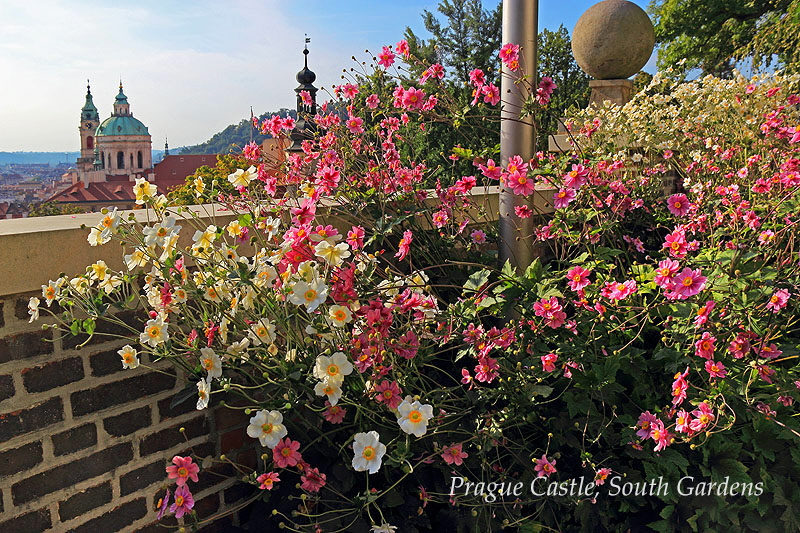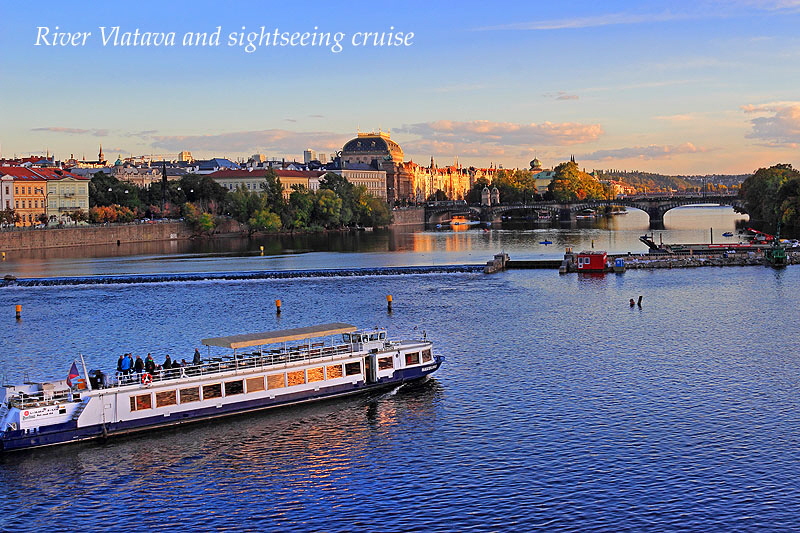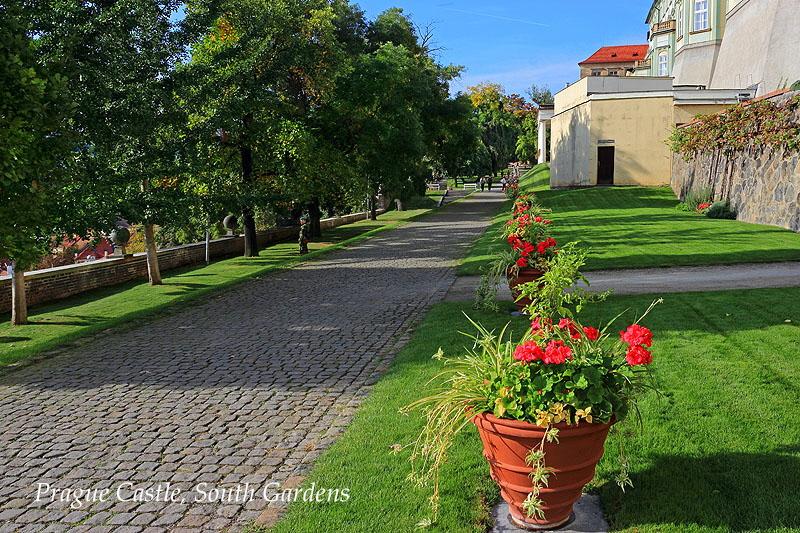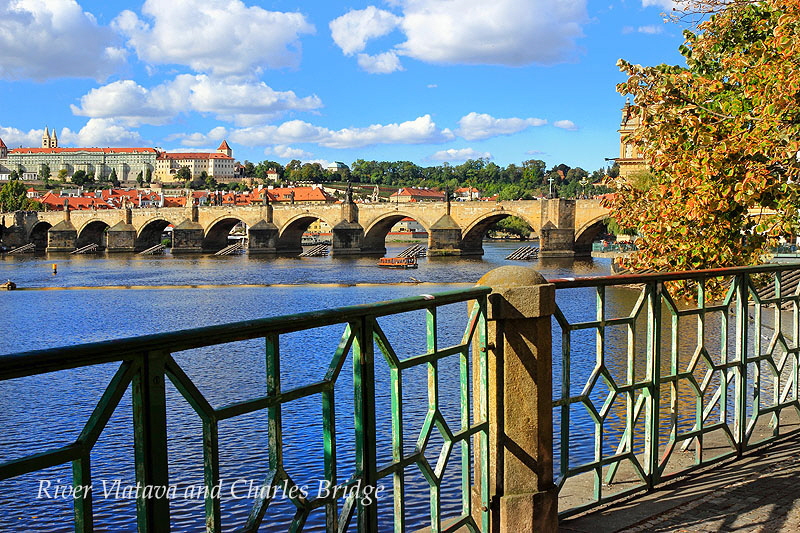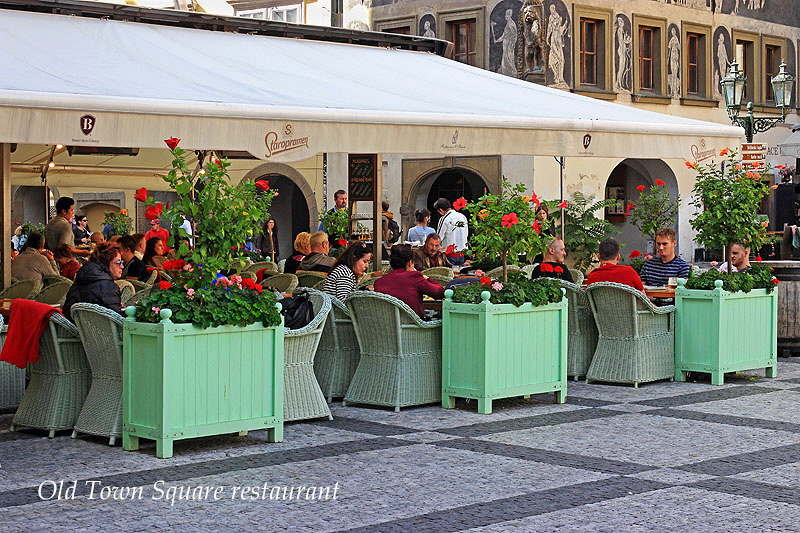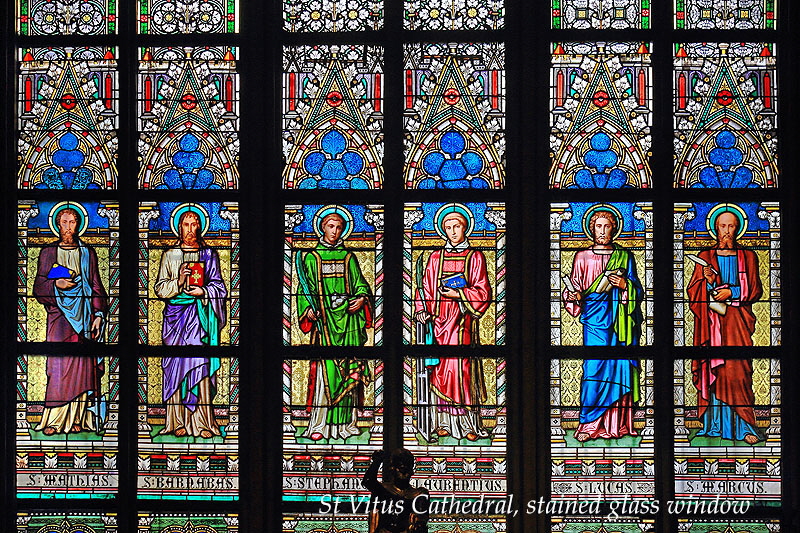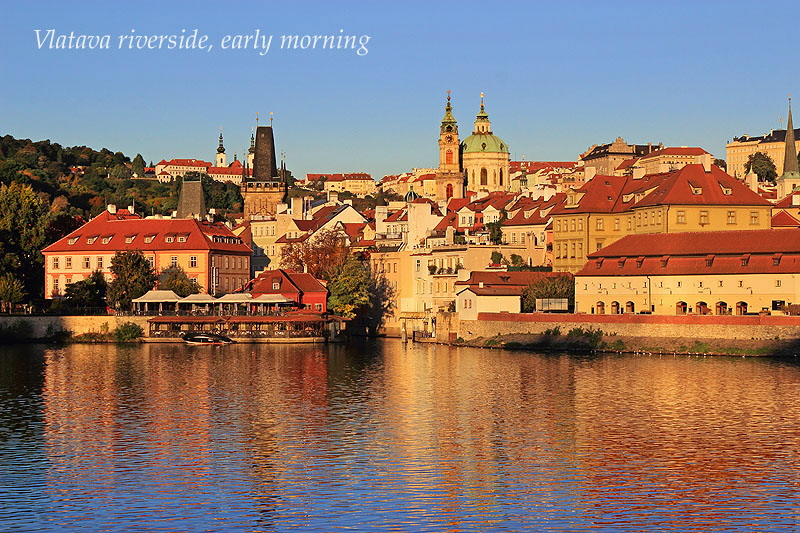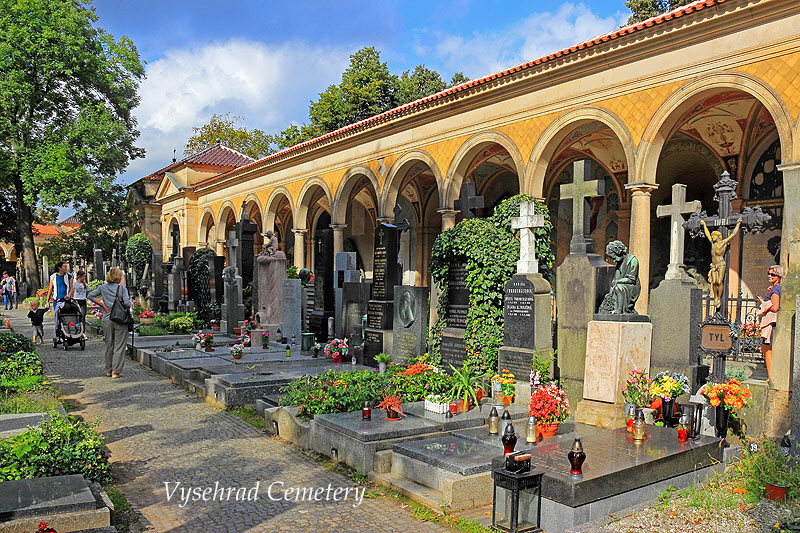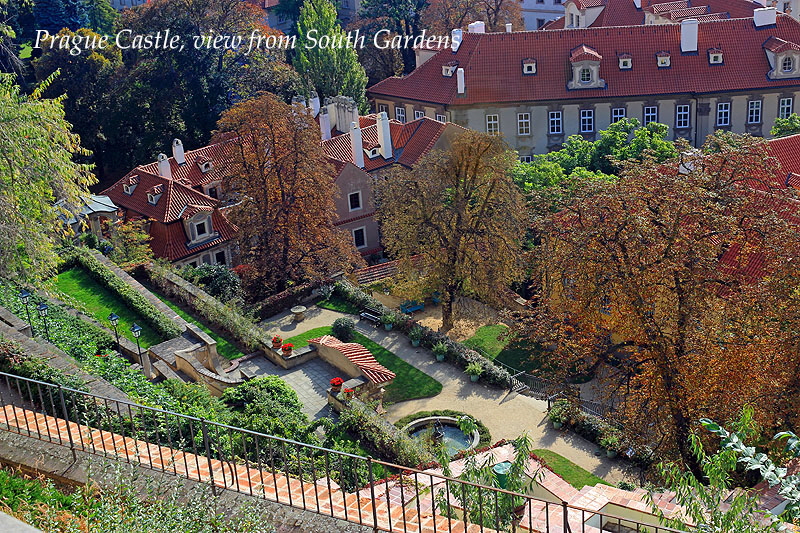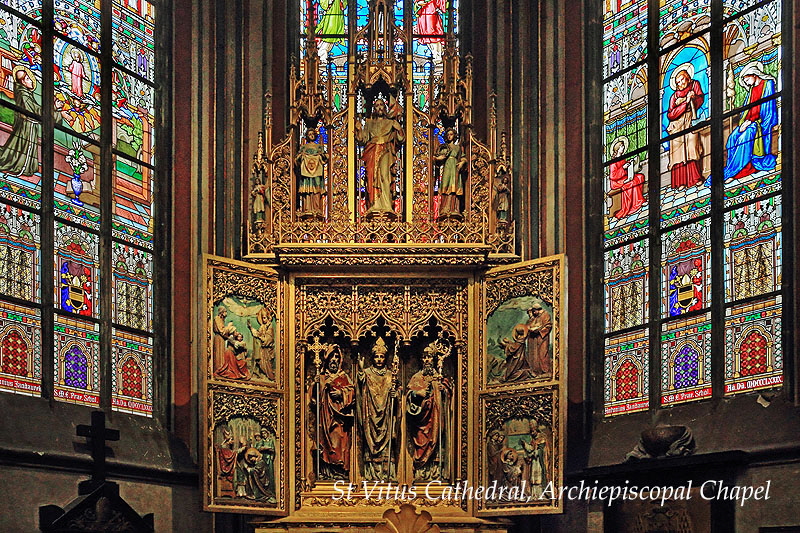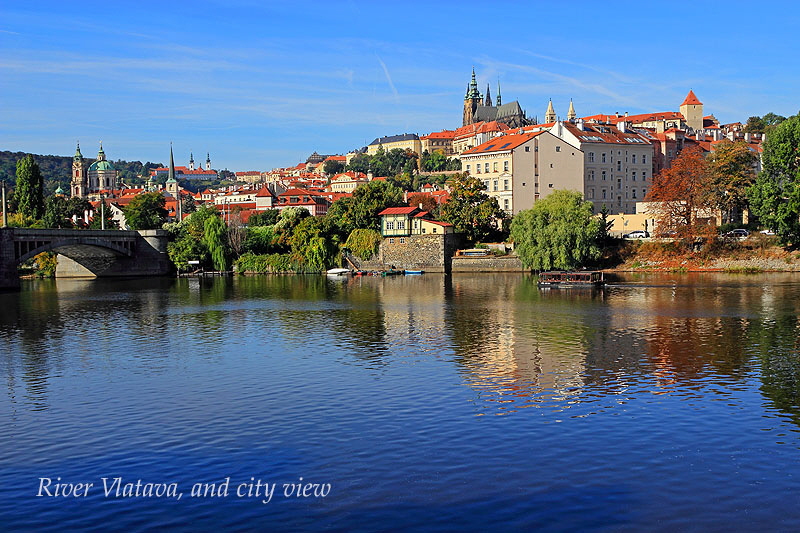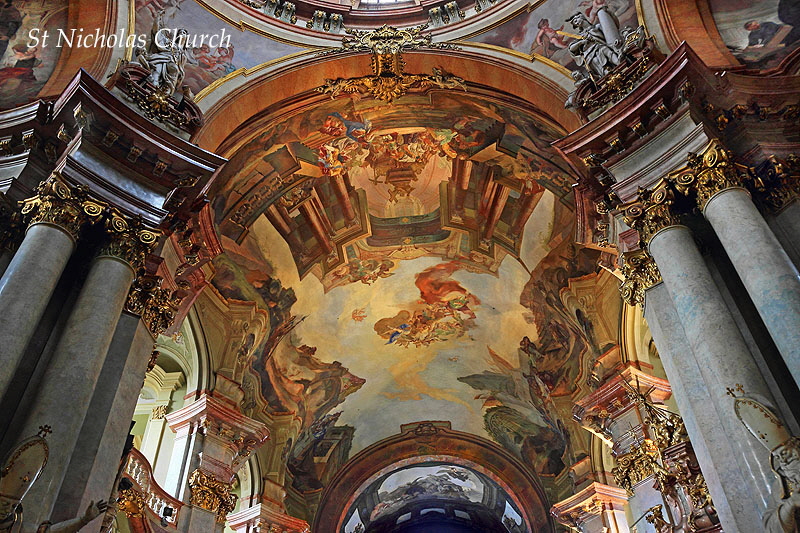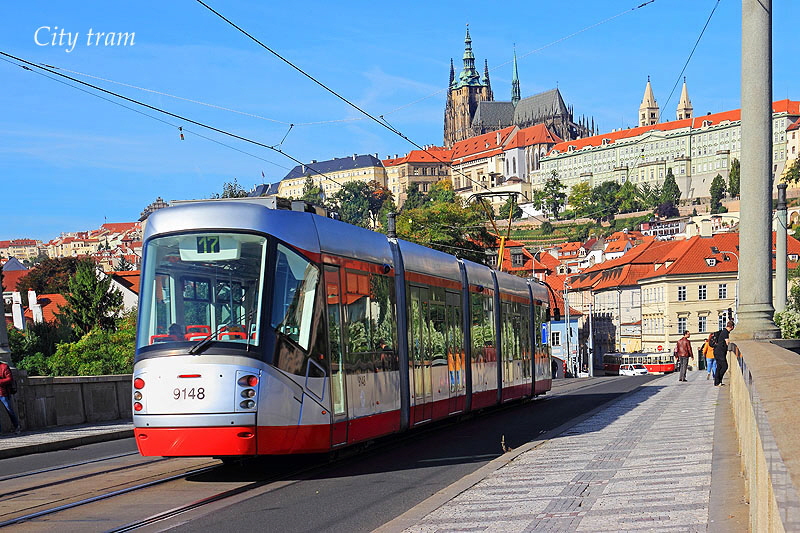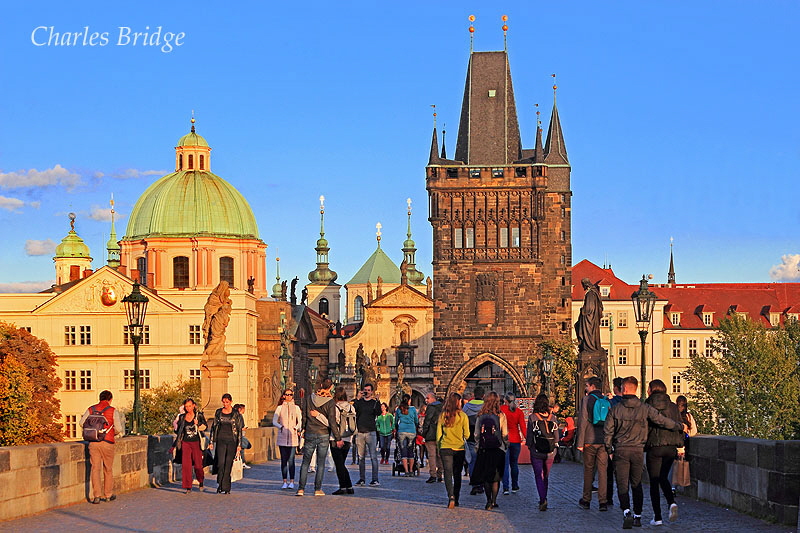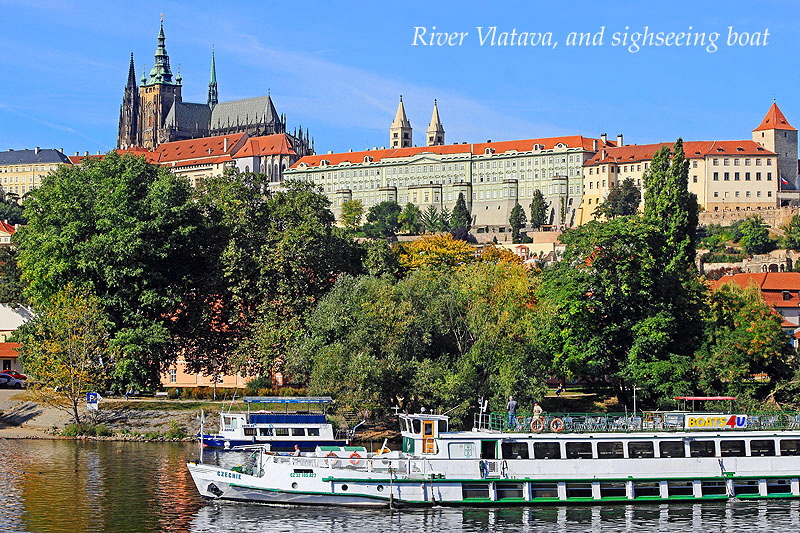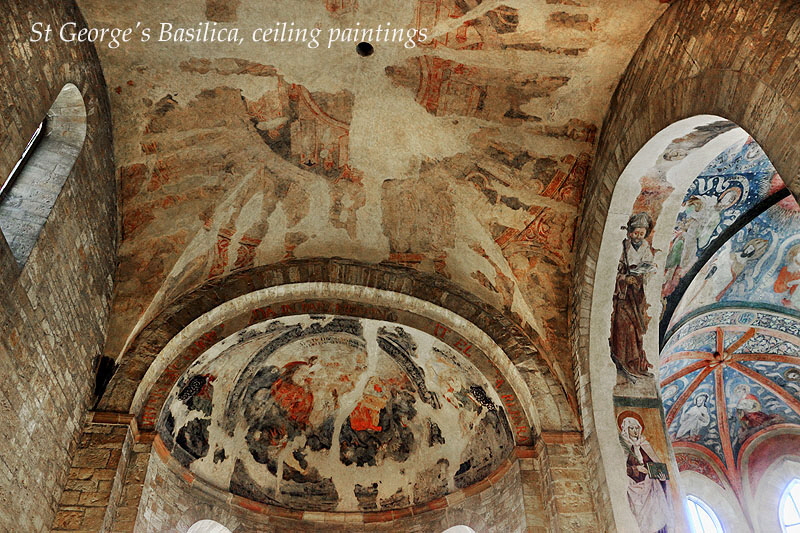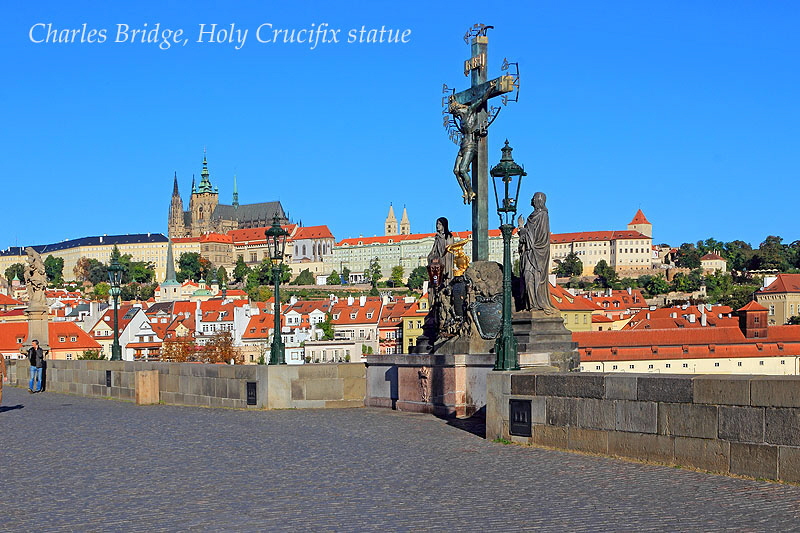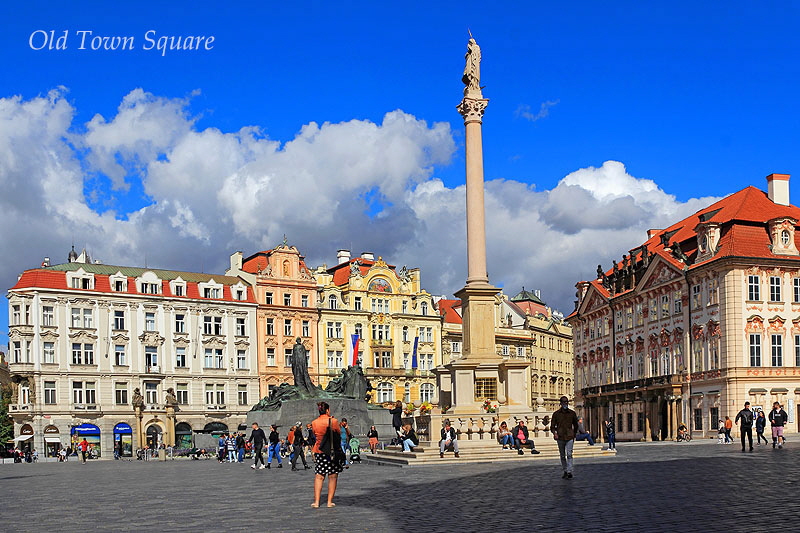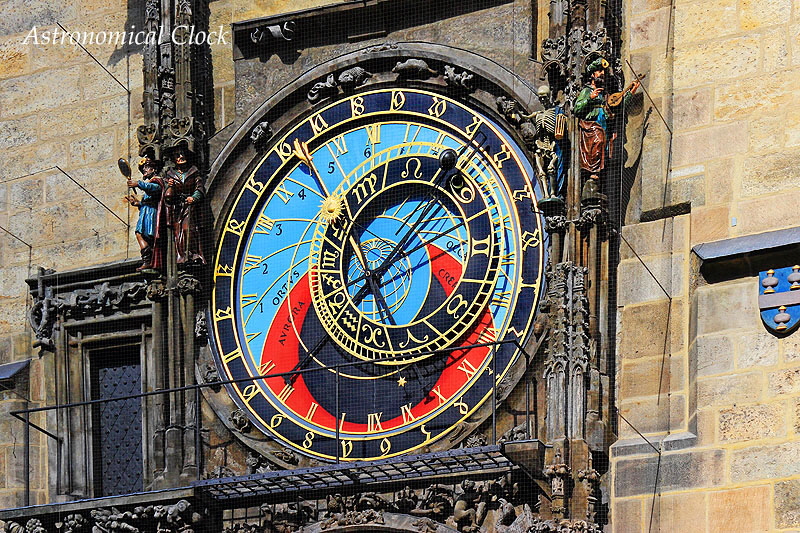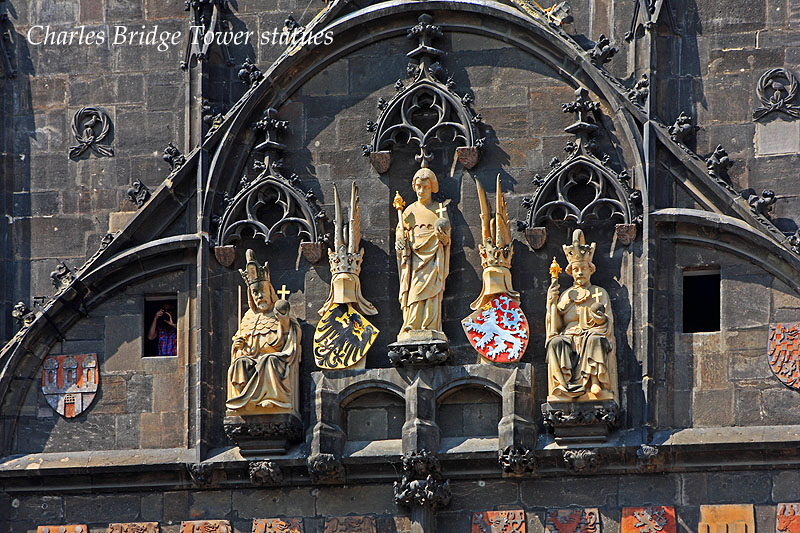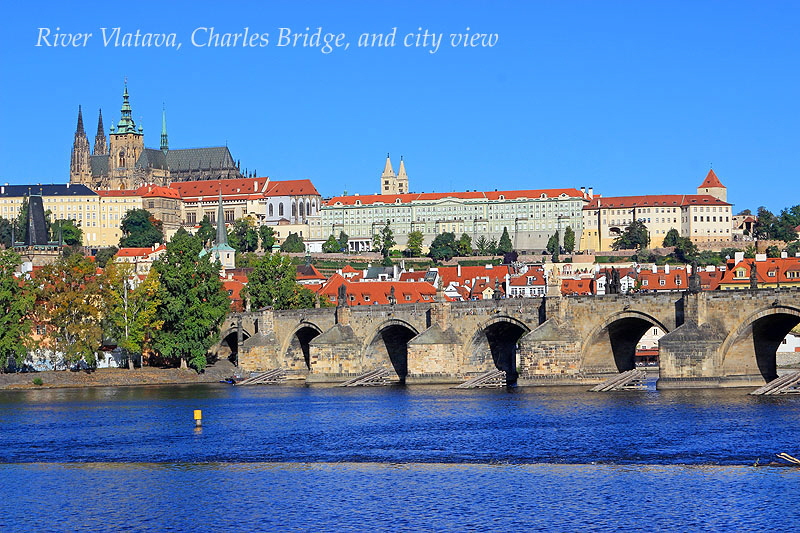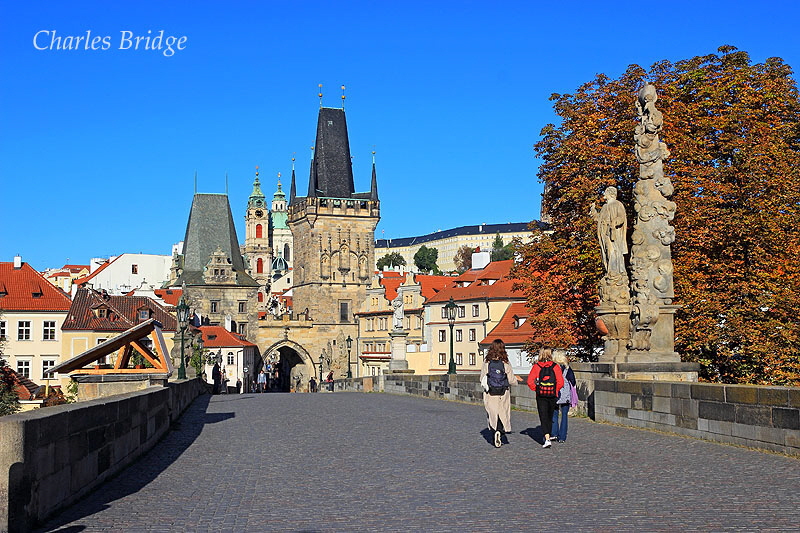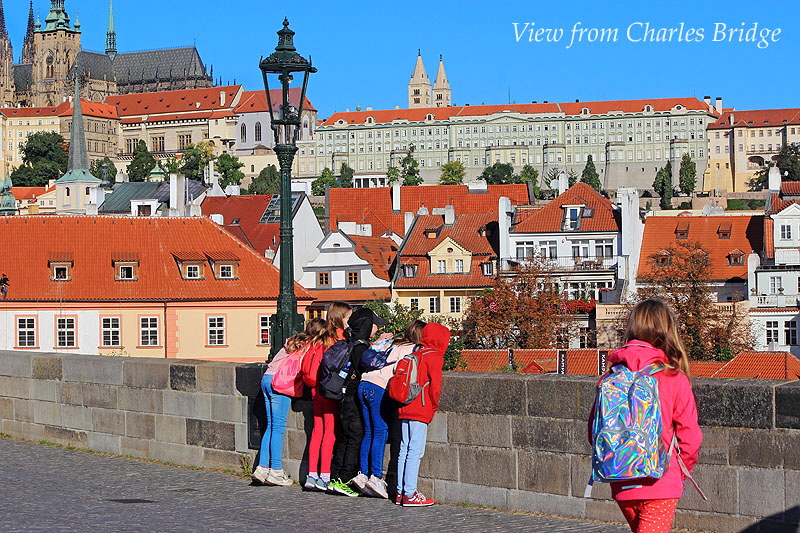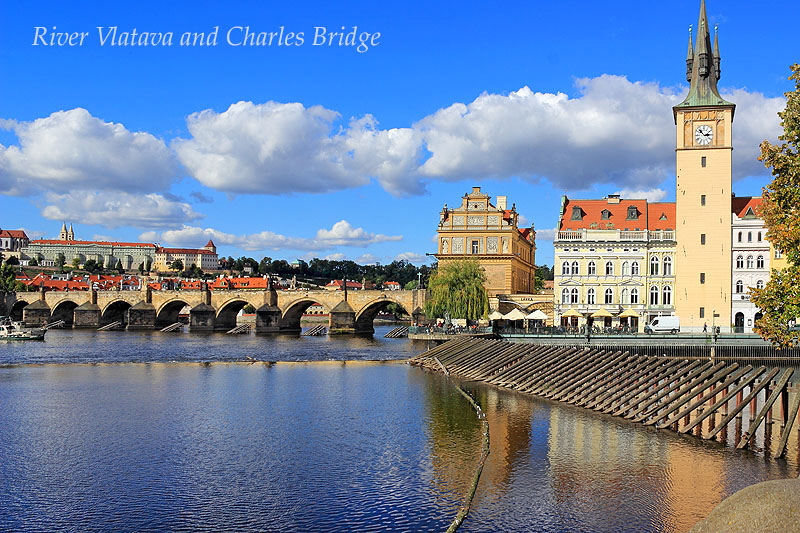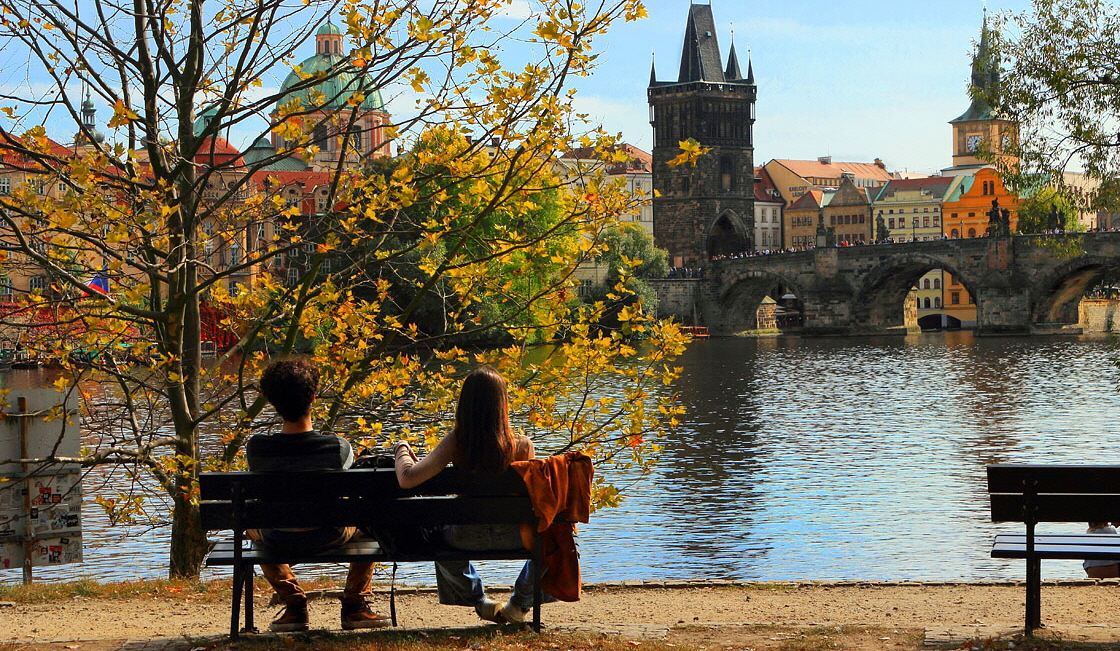
|
A long weekend in Prague |
|||
|
Beauty and the Bridge |
|||
Few cities in Europe can compete with the sheer architectural beauty and glamour of the Czech capital Prague. It takes its pride of place as one of the most popular short-break destinations. I spent a week in October (a good time to avoid the crowds) visiting friends and family and was able to leisurely explore the city. However, as most visitors come on a 3 or 4 day visit, I’ve tried to narrow it down to my preferred ‘not to be missed’ sights.
Vlatava River
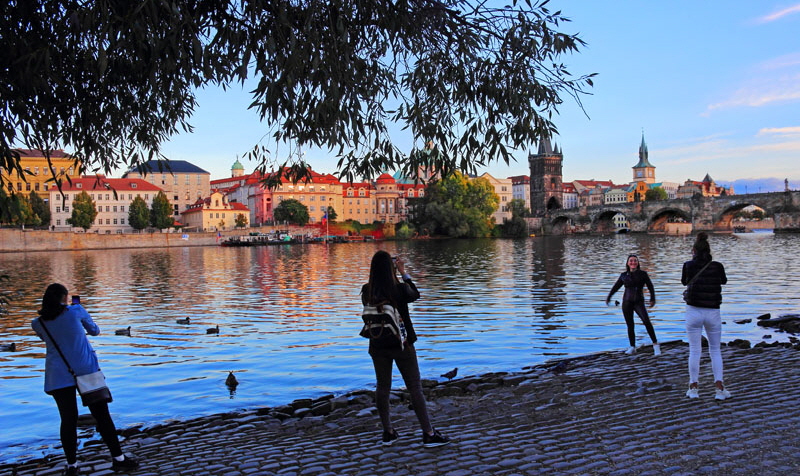
To get the most of your short holiday, it’s useful to know a little about the geography of the locality. It is divided into two distinct parts by the winding Vlatava River that cuts through the city and the succession of bridges that connect both sides. The most famous is of course Charles Bridge (Karluv most). From this point to the east is the Old Town, along with the New Town area, and across the river to the west is the hilly district of Malá Strana (Lesser Town), with the landmark site of Prague Castle complex on top, dominating the skyline.
Whichever side of the river you choose to stay in, the only way to explore this compact city is on foot. However, as the west side towards the castle is hilly, if you’re based in the Old Town area, it’s best to take a short tram ride across Manesuv Bridge up to Prague Castle and make your way downhill.
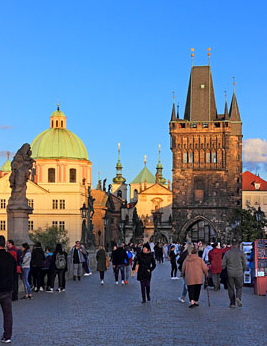
Charles Bridge and Vlatava River
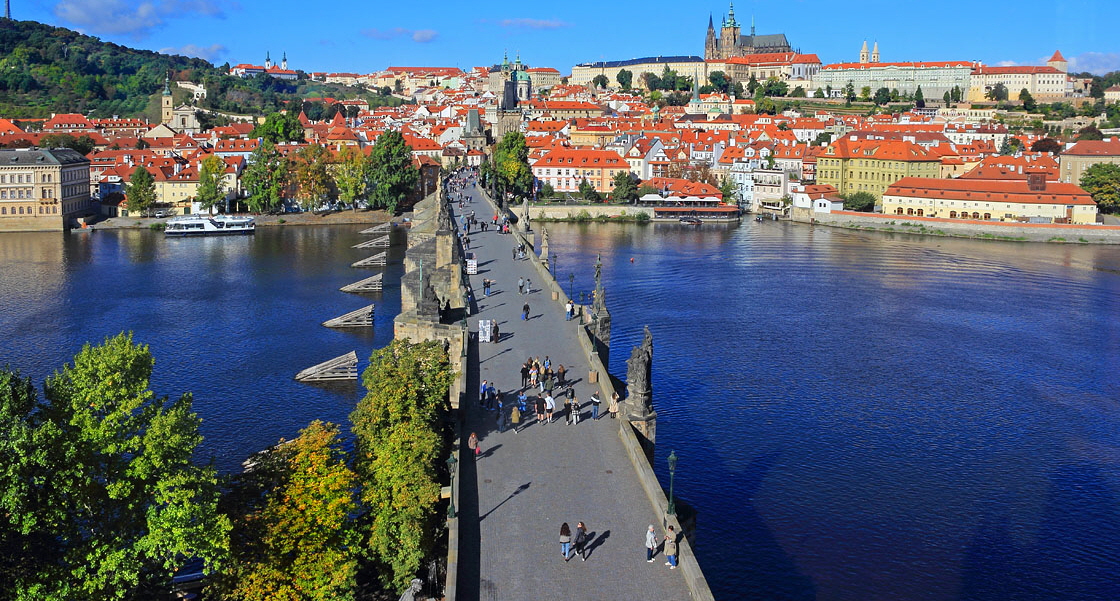
Charles Bridge - take a walk across, morning, noon and night
The focal point of the two sides of the city is its most coveted icon - the pedestrianized Charles Bridge. It was built from 1357 during the reign of the Czech king and Roman Emperor Charles IV. Until 1841, it was the only bridge over Vlatava River connecting the Castle domain and the Old Town. On its balustrade, the stone bridge is adorned with 30 statues of religious figures, saints, and kings, that date back to the 17th century. Many however have deteriorated over the centuries and have been replaced by replicas.
Some of the 30 statues on Charles Bridge
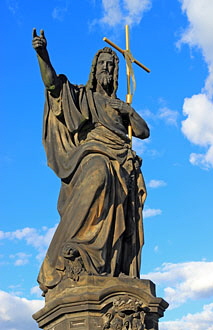

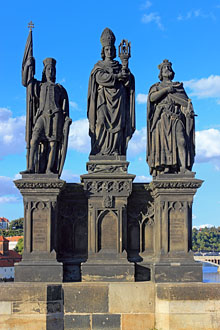
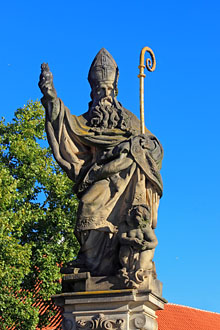
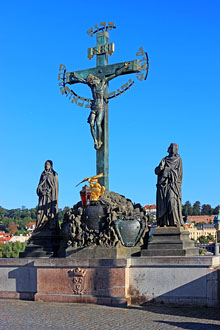
There are two towers on either end of the bridge, and you can climb to the top of the east tower for some magnificent vistas of the bridge and the city beyond. The bridge can get packed with tourists by midday, so for a clear view, early morning is the best time. However,
I also found the atmosphere quite lively, mingling with the crowds, the artists, the musicians, and souvenir sellers.
East tower
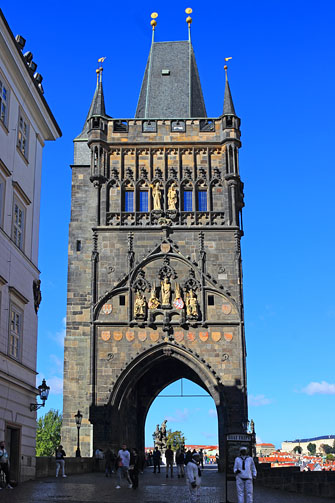
View from the east tower
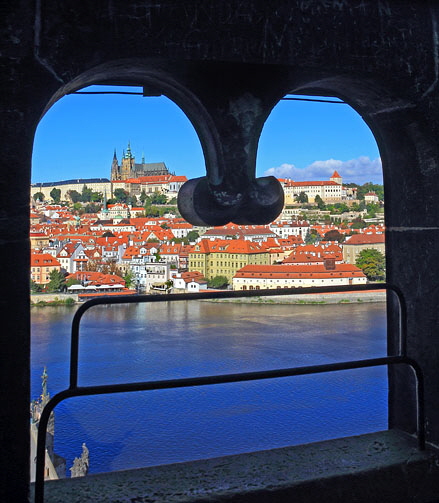
West tower entrance
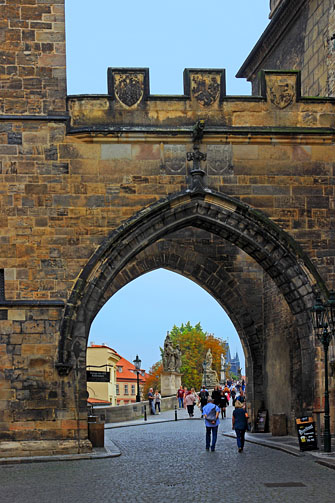
I was staying near the Castle area, and began my first sightseeing walk by visiting the unbelievable Strahov Monastery Libraries. It may not be in the top ten list of attractions, nevertheless in my view, a visit here should not be missed. It is one of the most beautiful libraries I’ve ever seen. Said to contain over 16,000 books, the two elegantly furnished halls with polished timber floors, furnishings, and exquisite ceiling paintings are the highlight of the visit. The monastery complex itself dates back to the 12th century, with the basilica and other buildings later added. The monastery grounds and gardens have paths for walks and a serene feel to them. And a few steps downhill from the site are panoramic views of the city and castle.
Strahov Monastery exhibits
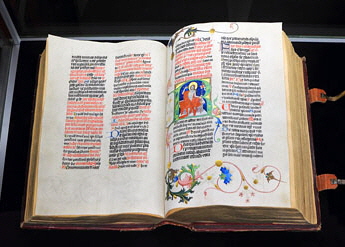
Strahov Monastery library
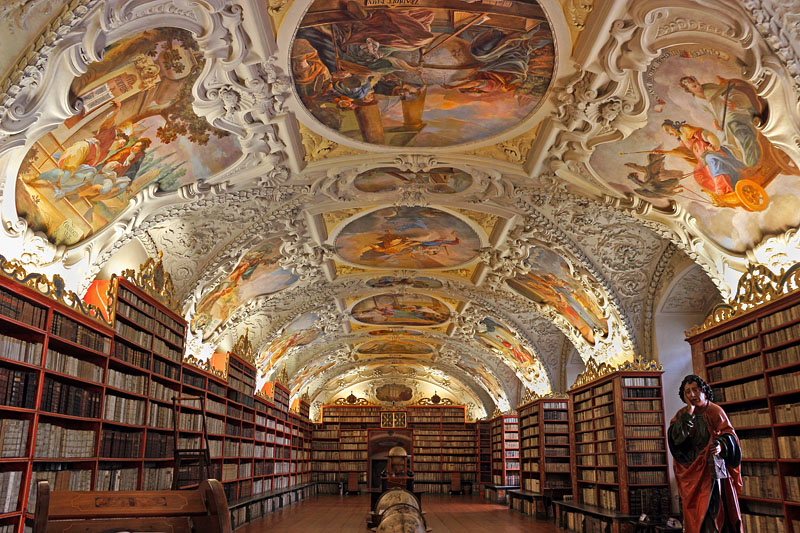

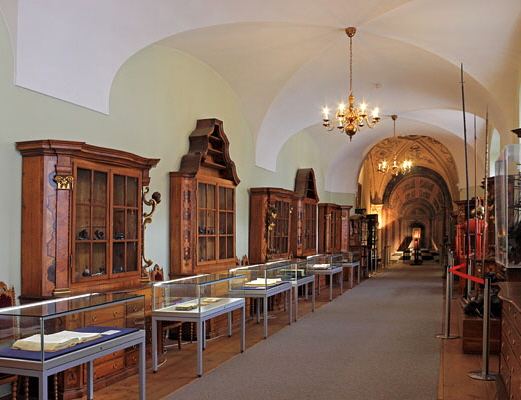
Strahov Monastery library
Strolling farther downhill, along narrow cobbled streets like Kapucinska Street and Novy Svet street, I passed by beautiful pastel shade houses and the nearby Loreto Church with its elegant facade and clock tower. Another 15 minute walk brought me to Prague Castle, the number one tourist attraction.
Loreto Church
Narrow cobbled streets on the way the Castle
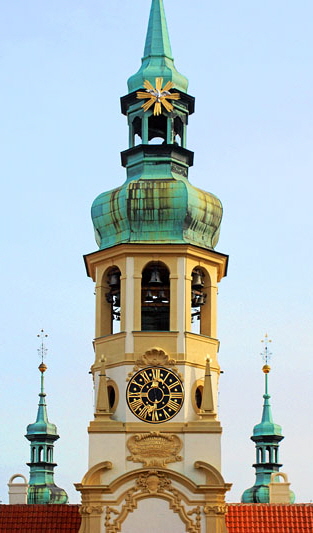
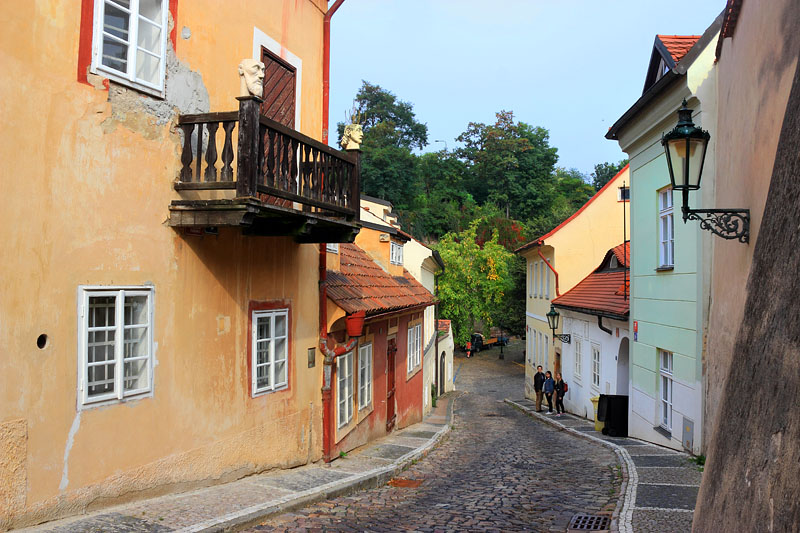
A Castle that’s more than just a castle
Viewed from far away, what you see is not Prague Castle itself but St Vitus Cathedral in the castle compound. Since I was in Prague for a week, I made two trips, as it was too crowded on the first late-morning visit. The next day, I arrived early and was able to spend time more leisurely. There’s so much to see here, it is quite possible to spend an entire day exploring the complex.
Castle on the hill
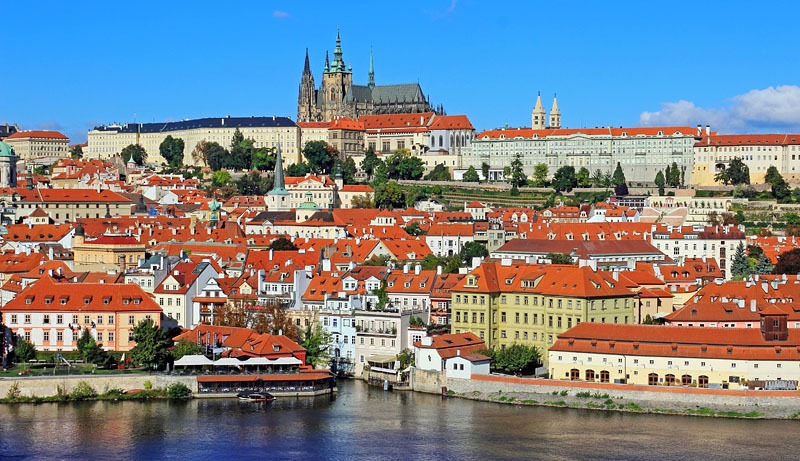
St Vitus Cathedral is Czech Republic’s most important Christian building, and seat of the Archbishop of Prague, Construction began in 1344, and due to wars and plagues, it took more than five centuries to complete. Rather than engross myself too much in its history, I was happy to quietly admire and be enchanted by the striking interior. Most spectacular are some magnificent stained glass windows like the rosette window, and choir window depicting the Holy Trinity. There are also several elaborate altars, full of intricate works of art. Outside, the splendid well preserved mosaic of ‘The Last Judgement’ must be one of the most photographed images of the castle complex.
St Vitus Cathedral, rosette window
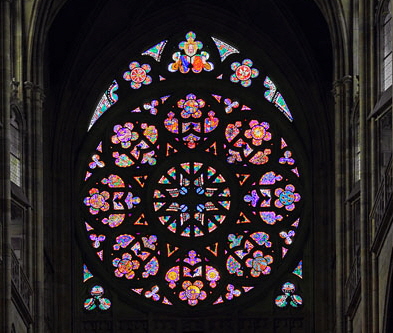
Choir window
Elaborate altars
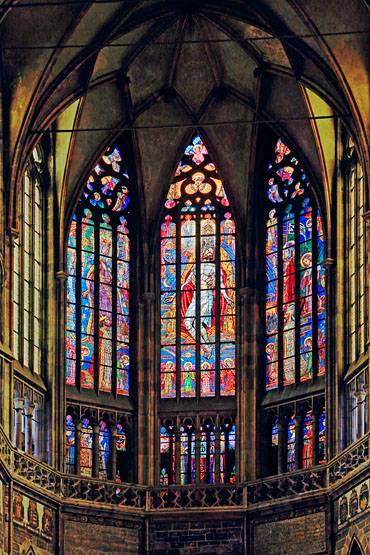
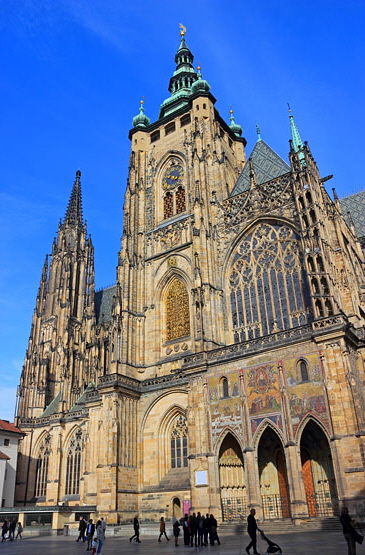
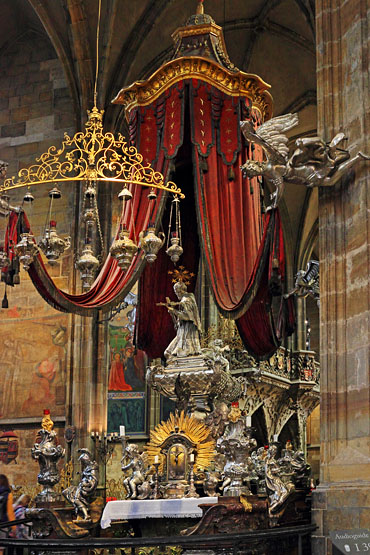
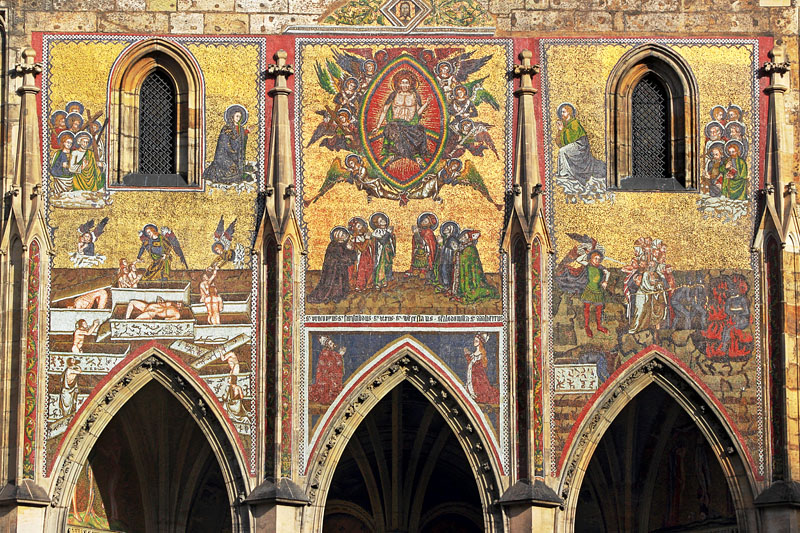
’The Last Judgement’ mosaic
From the outside, the 19th-century red brick facade the Basilica of St George can be deceptive. But inside what remains is one of the oldest churches in Prague dating back to the 10th century. Two wrought-iron staircases lead to the apse, and in the dome are remains of 12th-century frescoes. In the early 18th century the Chapel of St John of Nepomuk was built with an ‘ornamental’ looking altar and painted dome.
Basilica of St George
Basilica of St George, Chapel of St John Nepomuk
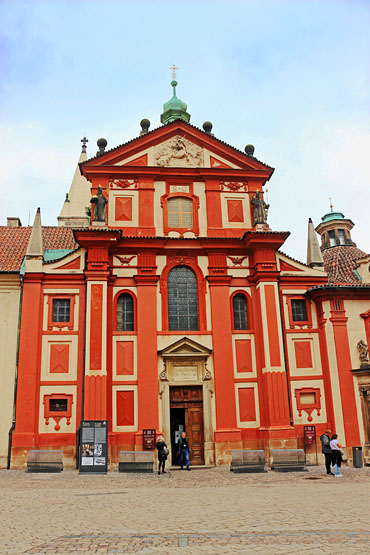
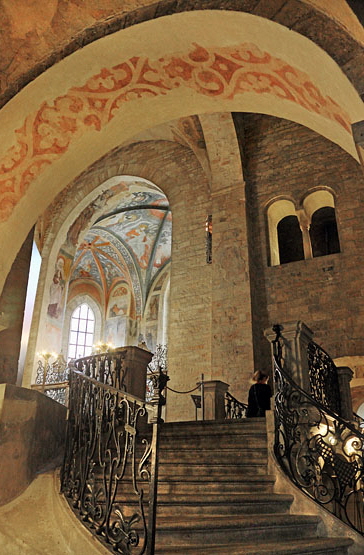
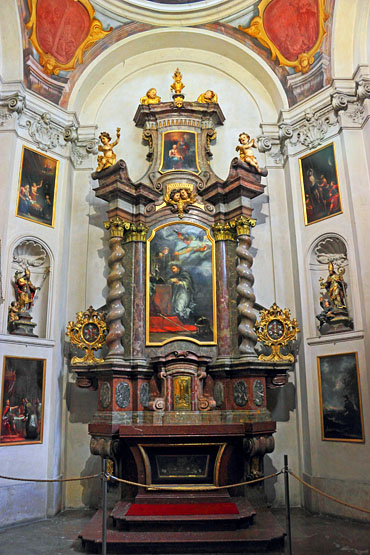
Although not much to explore, the Old Royal Palace building’s centrepiece Vladislav Hall with its gothic ceiling is an impressive example of renaissance period art and architecture. It is still used today for state functions and during presidential elections.
Old Royal Palace, Vladislav Hall
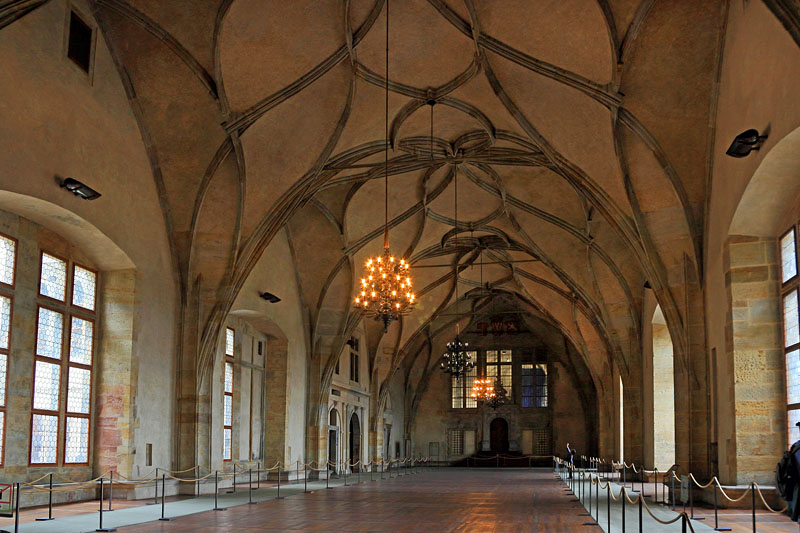
In contrast to the buildings and architecture of the castle complex, is the Golden Lane - a narrow cobbled street with tiny colourful houses.
Originally built in the 16th-century, it is named after goldsmiths that lived there and served Prague Castle. No one lives in the houses anymore, and you have to stoop a little to enter each property which has fascinating exhibits depicting from the medieval era to early 20th-century lifestyle. Tourists are drawn to this area in hoards, so several houses have been remodelled as crafts and souvenir shops, blending in with the architectural style.
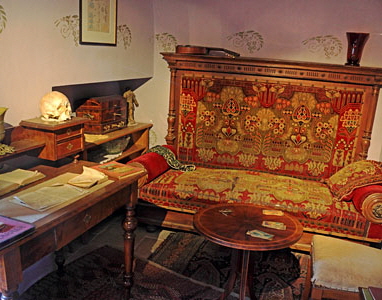
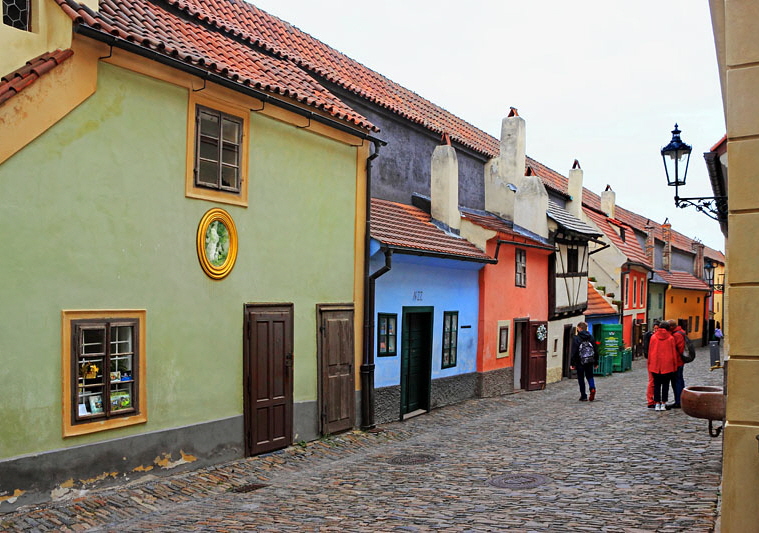
Golden Lane houses
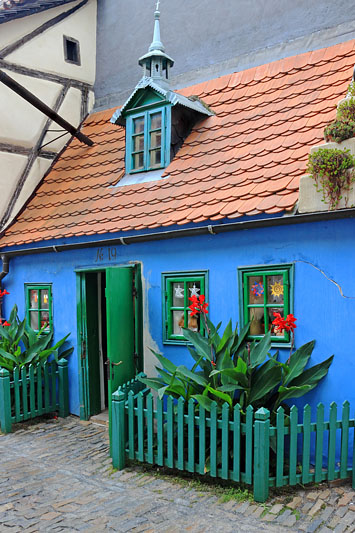
At the time of my visit, the Royal Gardens was closed, but South Gardens was opened to the public. Nearly half a kilometre long, it is neatly landscaped with walking paths, manicured lawns, statues, and flora. It also has marvellous views of the Lesser Town area.
Leaving the Castle by the main entrance where the palace guards are, by chance, I was in time to watch the Changing of the Guard ceremony.
Prague Castle, South Gardens

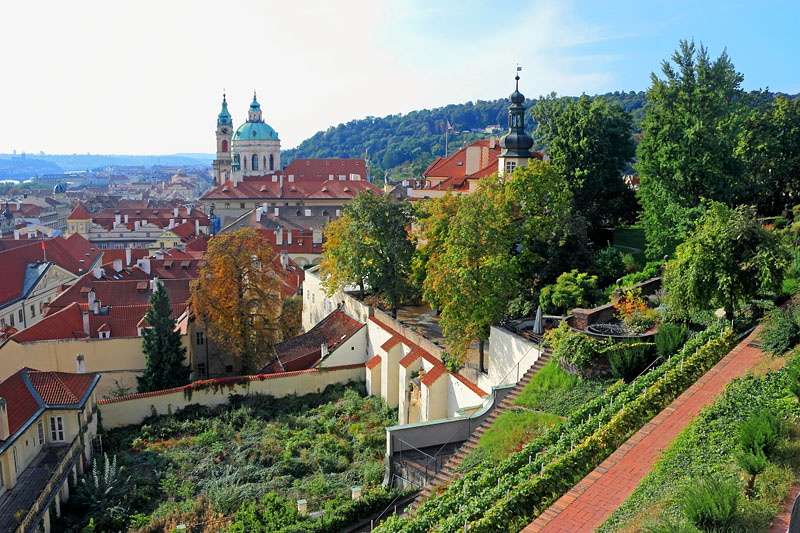
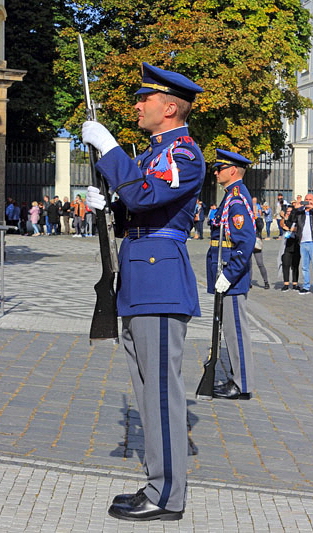
View from the South Gardens
Changing of the Guard
Prague House Signs - a well preserved hidden treasure
From the castle, walking downhill is one of the most interesting streets in Prague. In the ‘olden days’, many houses in the Lesser Town and Old Town did not have house numbers. Instead, they were identified by symbols and signs that denoted the type of establishment or trade it was. While in most European cities these signs have disappeared due to modernisation, in Prague there are hundreds of them lovingly preserved.
Nerudova Street
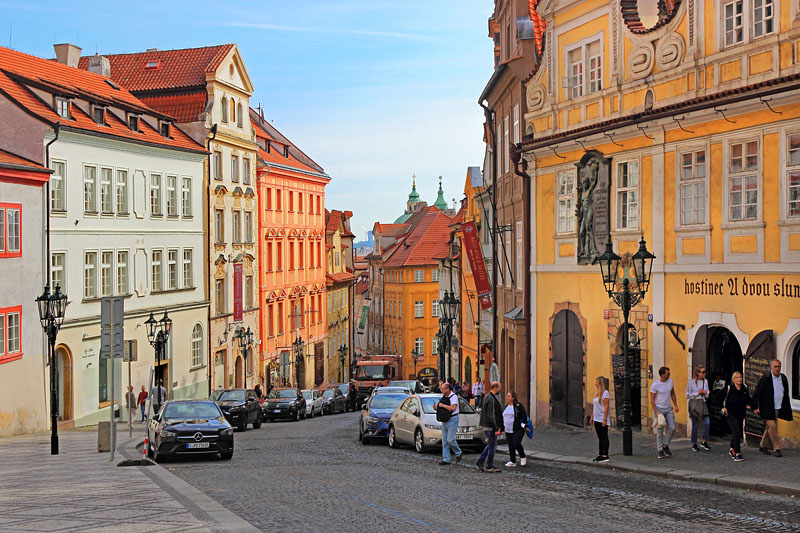
Walking down Nerudova Street, you get to see numerous plaques, signs, relief carvings, and pargetting above house doors and entrances. Walk slowly if you don’t want to miss any of them, as you have to cross the street back and forth to see all. Many more can be seen in the Old Town as well. This is one of the best hidden treasures that can be discovered and enjoyed when walking around the city.
House signs in Lesser Town and Old Town
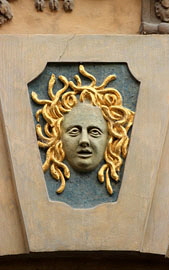
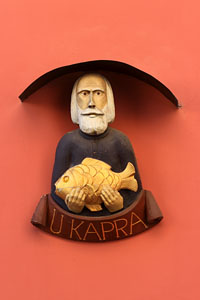
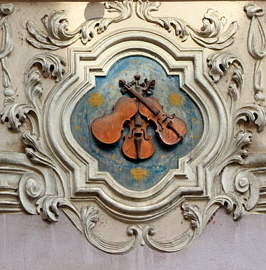
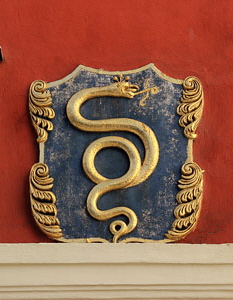
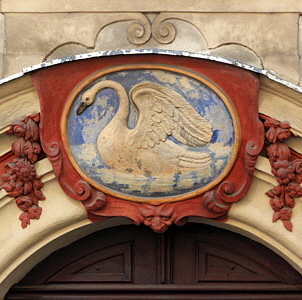
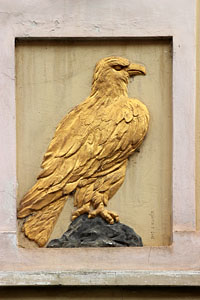
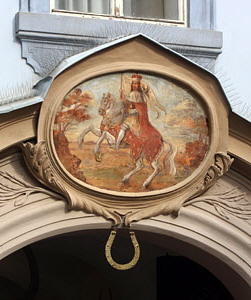
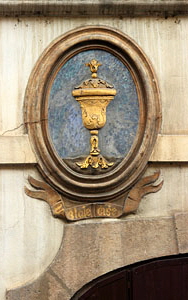
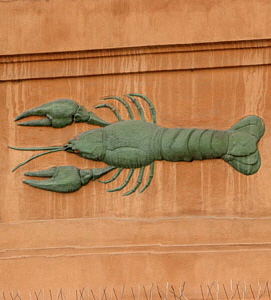
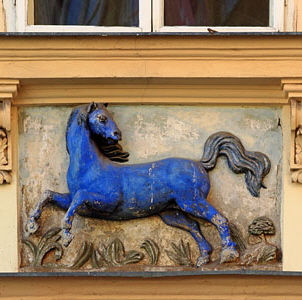
Further downhill is St Nicholas Church and its huge dome can be seen from most parts of the city. It’s a masterpiece of Baroque architecture, and inside is a monumental work of gilded art and sculptures. So elaborate is the interior, that it glistens with colours of gold and red, brimming with statues, ornate carvings, and paintings. I found a stairway that led up to a balcony from which I could admire some sculptures at eye-level. It is one of the most decorative church interiors I’ve ever seen.
St Nicholas Church
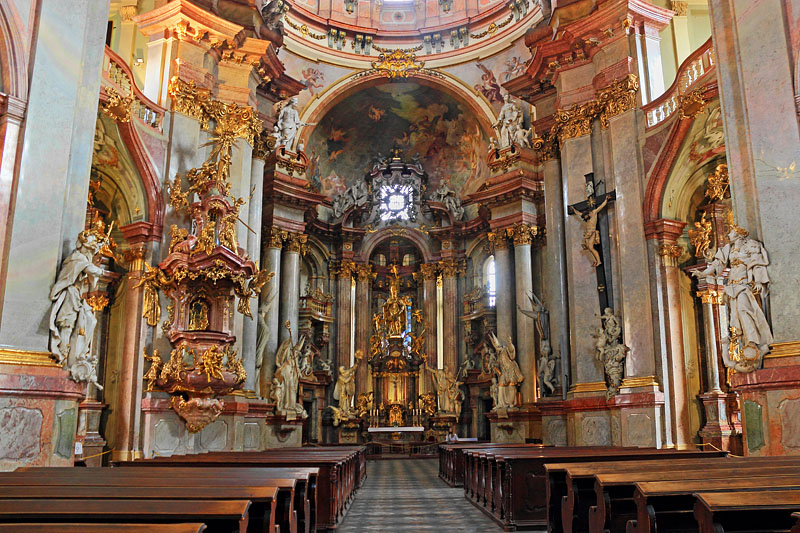
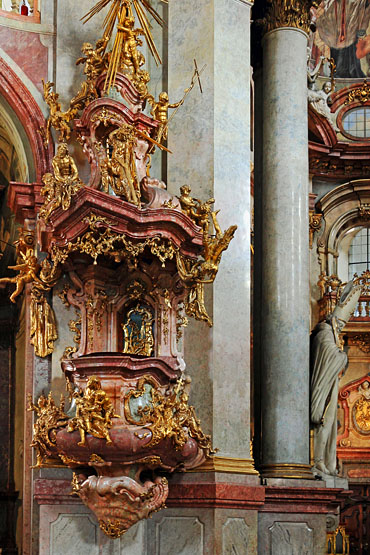

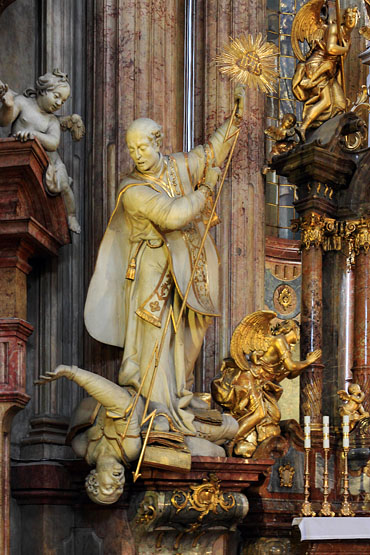
Get lost in the Old Town
Back at Charles Bridge, I crossed over to the Old Town and Old Town Square (Staromestské námestí), one of the most beautiful squares in Europe. So much has been written about it, one hardly needs an introduction. Getting lost in the maze of narrow alleyways and cobbled streets was much of the fun for me, not forgetting to spot more ‘house signs’.
Heading towards Old Town Square, the most popular structure is the Town Hall building with the famous Astronomical Clock (Orloj). First installed in 1410, it’s the world’s third oldest astronomical clock and even works today.
At the opposite end of the Square is the 14th century Tyn Church (Church of Our Lady). Its distinct feature is the two 80 meter high towers topped with four smaller sharp spires on each tower. It has an elaborate baroque style interior, similar to St Nicholas Church (no photography allowed).
But the Old Town Square is much more than the clock and church. In one corner is the large monument to Jan Hus, the 15th-century reformist, and martyr. Within the whole square and back streets, there is a multitude of amazing buildings and diverse architectural styles, and I left plenty of time to enjoy it leisurely, as well as soak up the atmosphere with a coffee break at a cafe on the square.
Old Town Square
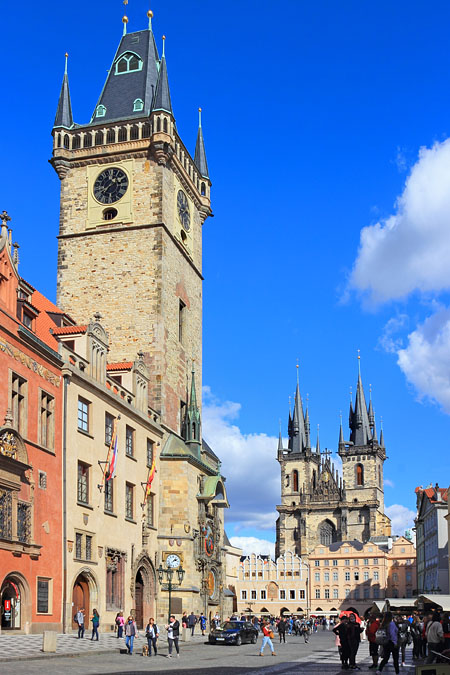
Tyn Church
Wedding photos by the Astronomical Clock
Cafe on the square
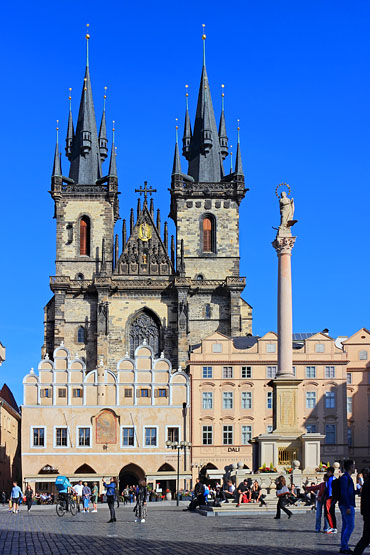
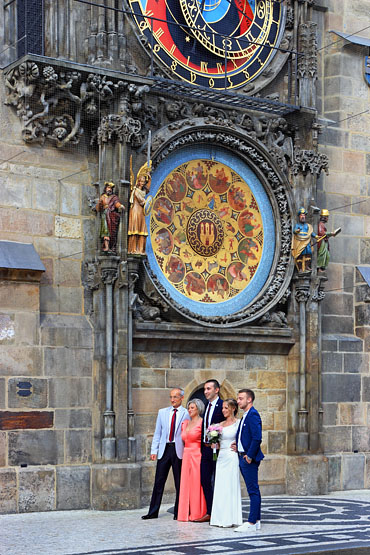
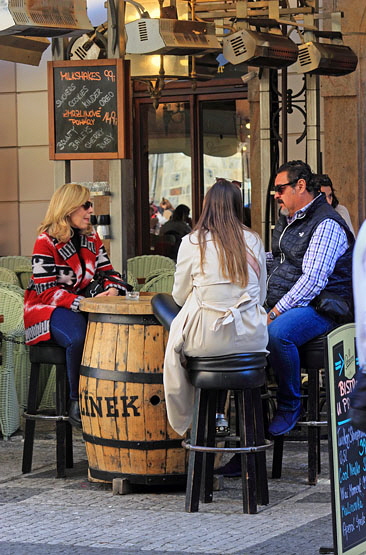
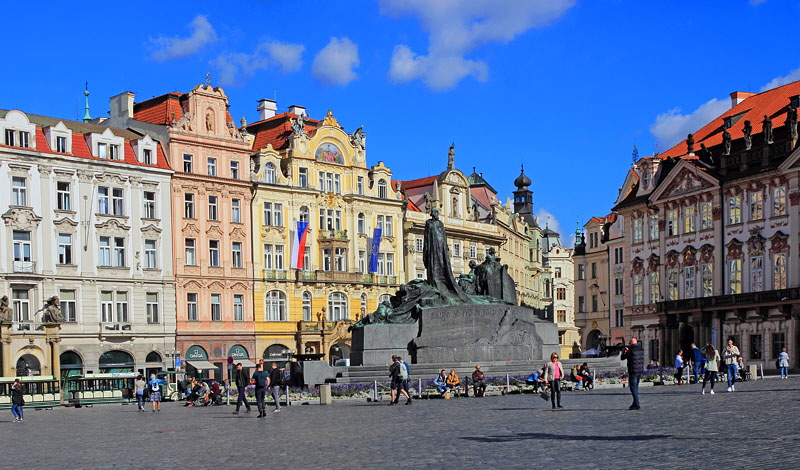
On the north side of the square, next to the church of
St Nicholas (not to be confused with the one in Malá Strana), is a row of excellent pastel-coloured buildings. Amidst them is the Ministry of Local Development building. Its elegant yellow facade with a coat of arms, paintings, and on the top statues representing local firemen are a mixture of Art Nouveau and classical Baroque architecture.
The Kinsky Palace (now an art museum) is a fine example of rococo-style architecture and plasterwork.
The House of Stork (Storch) is a stepped gable top structure. The building’s façade has a huge mural of St Wenceslas on a horse. The 17th century Renaissance façade of House Of The Minute is covered with sgraffito art depicting some biblical and mythical figures.
These are just a few examples of art and styles of over several centuries that have blended and made Old Town Square such a remarkable place.
Ministry of Local Development
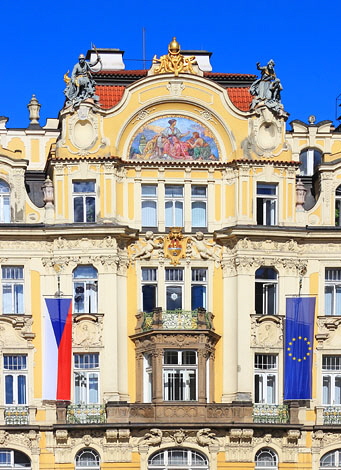
Kinsky Palace
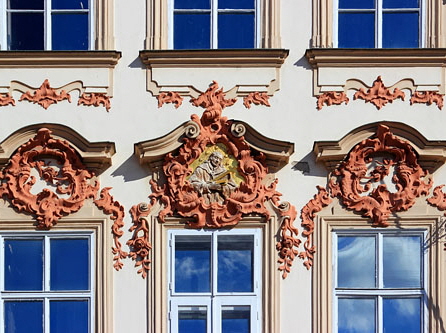
House of Stork
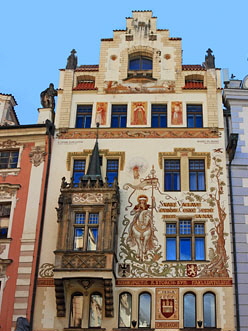
House Of The Minute
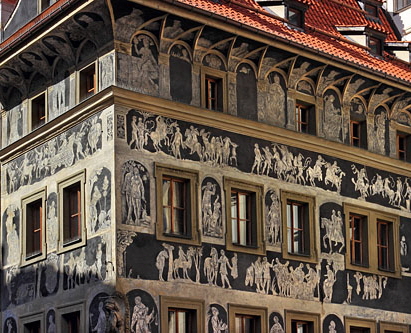
If you have an afternoon free, take a walk up to Letná Park (Letenské sady). The high elevation affords magnificent views of the curving Vlatava river and several bridges. It’s also a perfect spot for an evening stroll, and as the sun goes down see the city light up and reflect on the river.
View from Letna Park
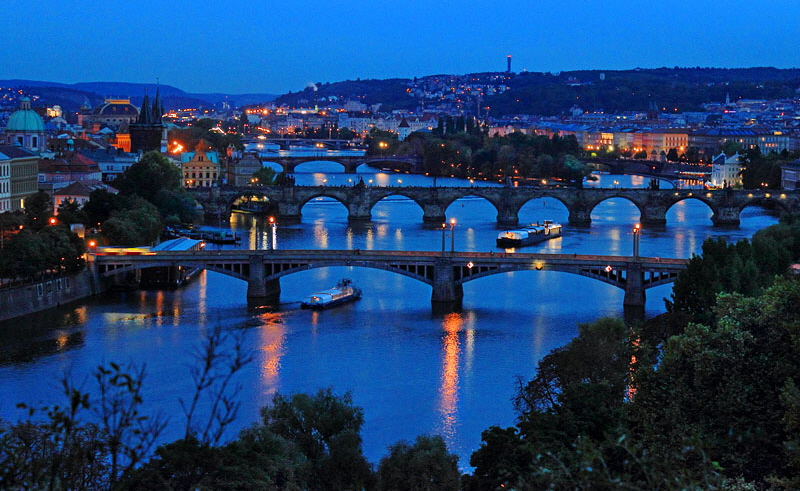
For more picturesque views, take a river front stroll. I started my early morning walk along the east side and was spectacularly scenic as the sun rose and the warm colours lit up the city towards the Castle, then gradually turned into a brilliant blue sky all around. Similarly, I did an evening stroll on the other side of the river.
Early morning views
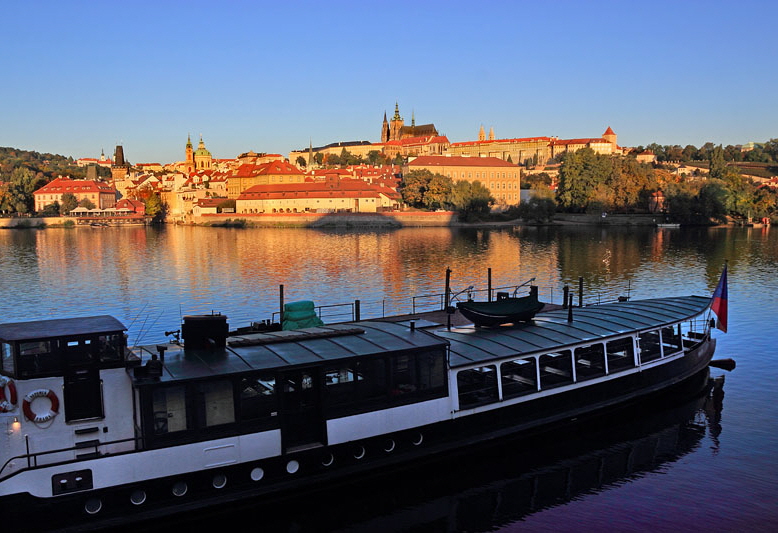
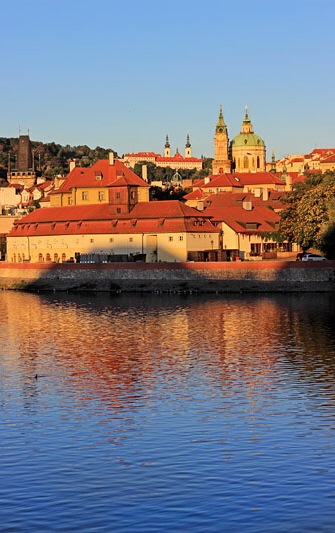
On the riverside walk, take a detour to the Certovka Canal. Just 750 metres long, it cuts inland from the Vlata River on the Malá Strana (Lesser Town) side. Just behind Charles Bridge, from a small bridge on Na Campe Street is a lovely view that reminded me of the canals in Bruges. There are some river cruises that take you through the canal as well.
Certovka Canal
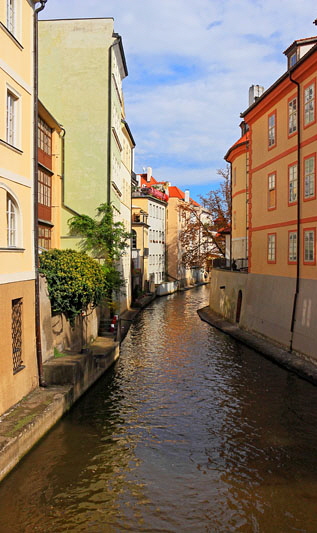
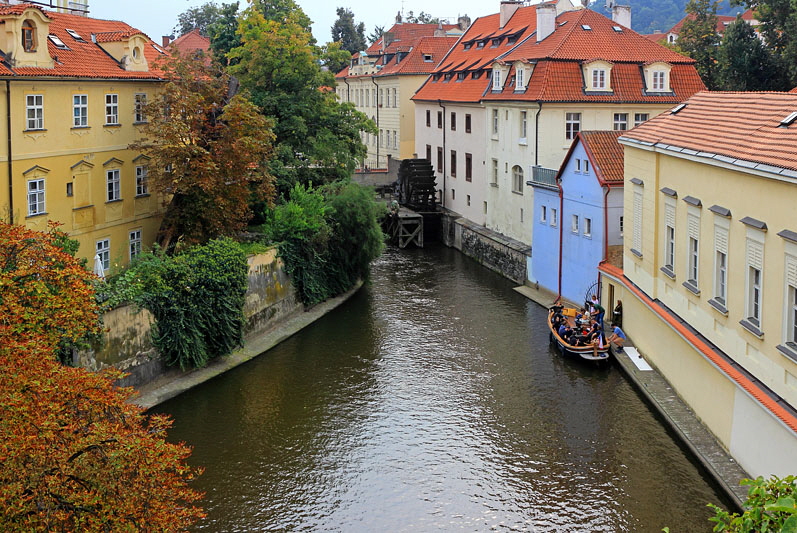
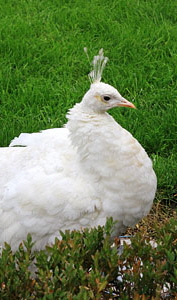
In the Lesser Town is the Wallenstein Palace and Gardens. Described as an oasis in a crowded city, it invites you to take a stroll, enjoy the beautifully landscaped gardens, filled with fountains, and statues. You’ll even spot a white peacock or two roaming around freely. It’s an ideal place to relax in calm surroundings.
The palace building itself is home to the Senate of the Czech Republic. Step into the three-arched entrance hall (Sala Terrena) to view the stunning ceiling paintings.
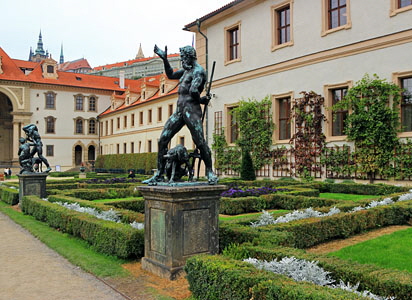
Wallenstein Palace and gardens
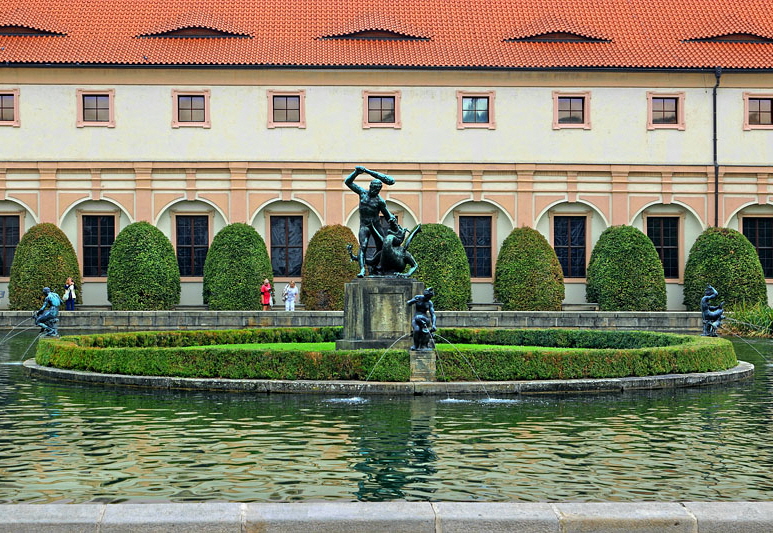
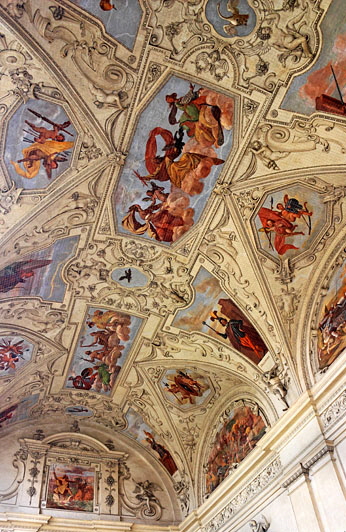
If you’re spending a little longer in Prague, a visit to Vyšehrad (upper castle), is a good day trip. Just southeast of the city centre, a couple of stops by metro, and away from the crowds is the hillside 10th-century fort. It’s a huge green area with parks, walking paths, and stunning panoramic views from the ramparts. You’ll need about two hours to walk around everywhere. The main attractions of this monumental site are the beautifully maintained cemetery with graves of famous Czechs, the basilica, and the 11th-century Rotunda of St Martin.
Vysehrad park
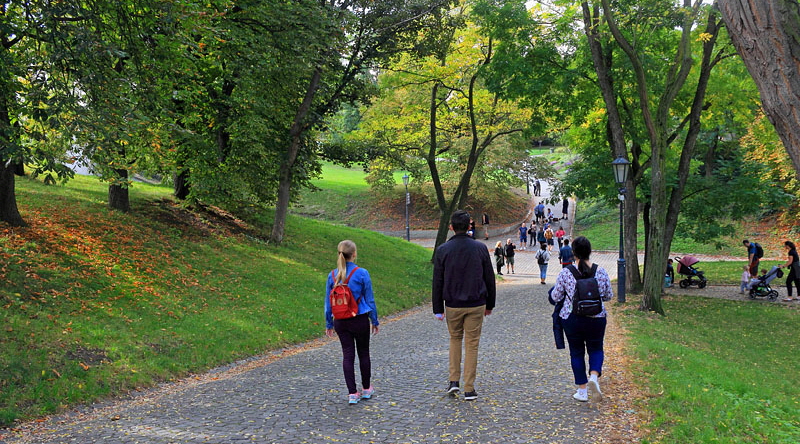
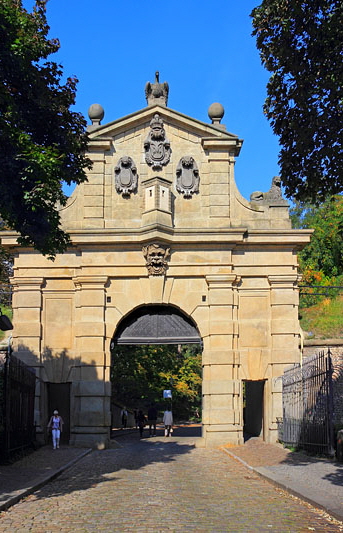
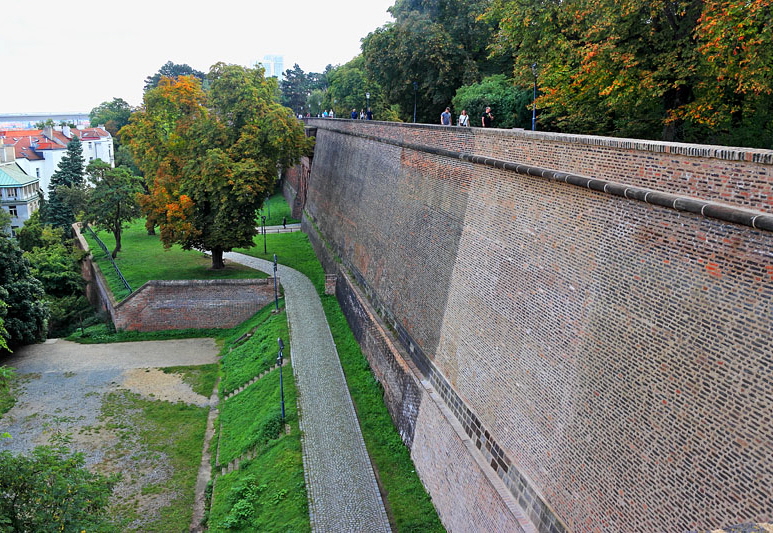
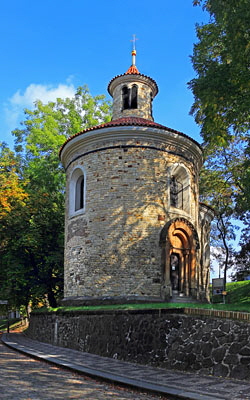
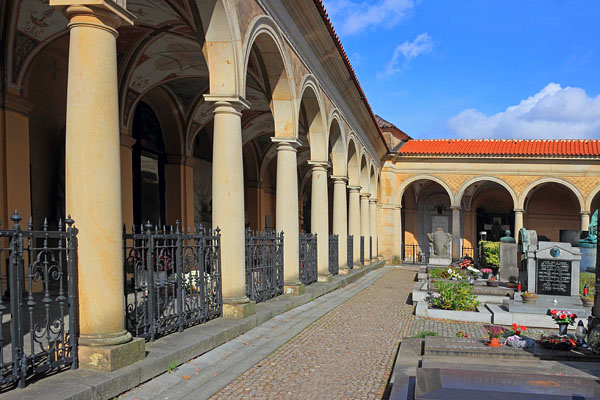
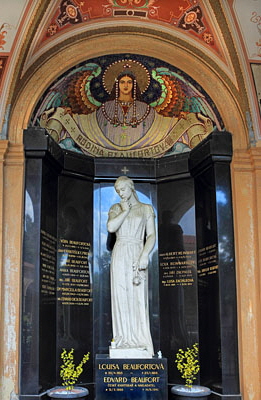
Vysehrad, The Rotunda
Vysehrad Cemetery
Fact File:
All the sights mentioned can be covered in a 4-night break without rushing. If you can extend your stay further, get a good guidebook, as there are numerous other places to visit within the city and outskirts.
Visiting Prague Castle:
At the ticket office (inside the complex) you can purchase a ticket giving entry to several buildings and areas in the compound. There are three entrances, and tram No.22 stops by the western side entrance.
Dining:
Cafes and restaurants in the busy touristy areas can be expensive, especially around Old Town Square. But venture a little further onto the narrow streets and you’ll find plenty of small restaurants serving typical Czech cuisine.
Getting there and getting around:
There are daily BA flights from Heathrow, as well as low-cost airlines from other airports. In Prague, nothing is too far away, but the city has an inexpensive excellent tram service and three metro subway lines if you wish to venture to the outskirts of the city.
30 images here ©JAYTRAVELPHOTOS
© COPYRIGHT notice. The images on this site are for viewing only.
To purchase any, for personal or commercial use, please contact us at jaytravelphotos@aol.com

